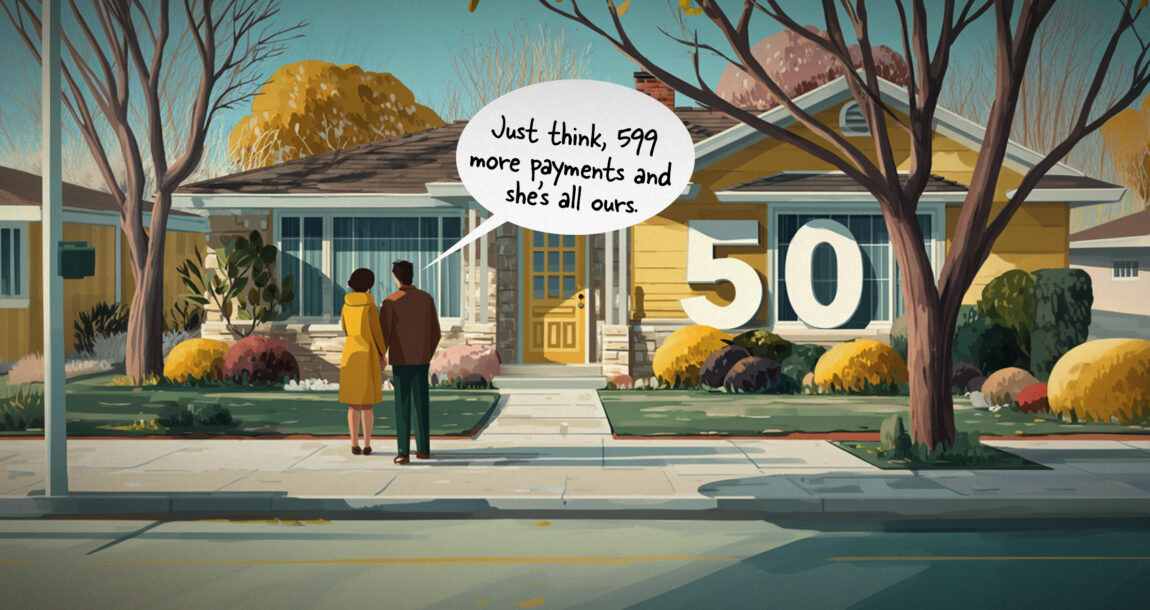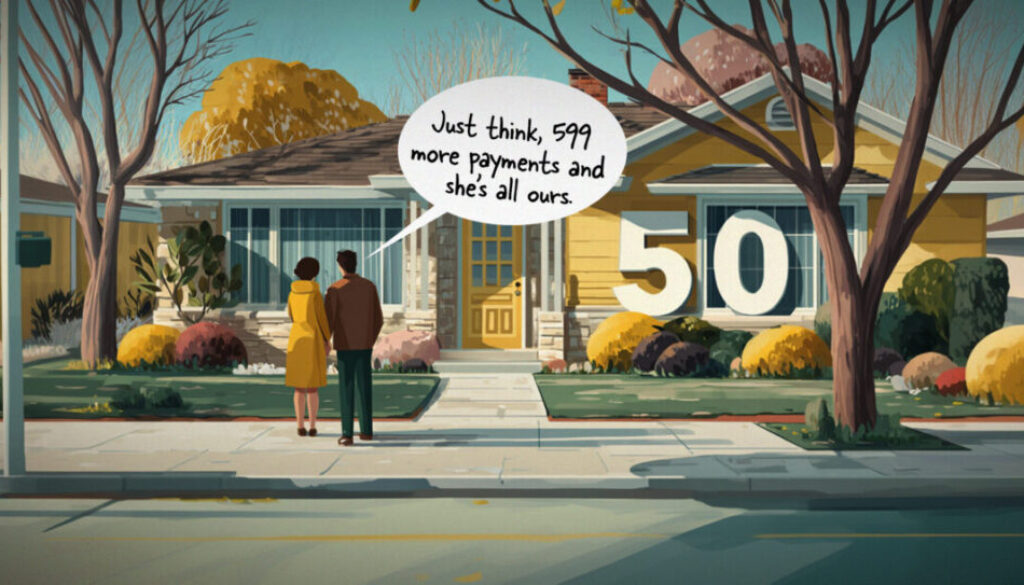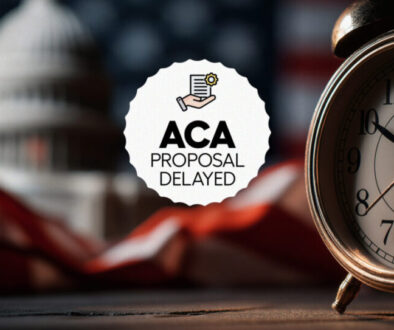Study: Nearly half of Americans would consider a 50-year mortgage

President Trump recently threw out on Truth Social the idea of introducing a 50-year mortgage. A study of 1,000 Americans by Badcredit.org found that almost half of Americans (45%) would consider a 50-year mortgage if it were available.
Younger consumers (particularly millennials) expressed even more interest in this option. Fifty-four percent of those in this age group (29 to 44 years old) would consider this type of mortgage. In contrast, only 29% of Baby Boomers (age 61-79) expressed interest.

“The advantage of a 50-year mortgage is that it can lower the monthly mortgage payments at a time when wallets are stretched thin,” says Erica Sandberg, consumer finance expert with Badcredit.org. “A few hundred dollars could make the difference in helping people (particularly younger people) get their foot in the door.”
Sandberg notes that millennials are more likely to have kids or teenagers at home and lots of expenses. She says eventually those costs will go away and people with a longer mortgage will eventually be able to pay more.
“It gives people more flexibility to get a house at a lower cost and pay more later,” she says.
She gives an example of parents paying for their child’s car payment and in a few years, that child would be paying for their own car, leaving more money for the parents to use toward the monthly mortgage.
Sandberg also sees an interest for first-time homebuyers, many of whom are struggling with coming up with money for a down payment. She urges people to take a deep look and their spending and budget and look for ways to whittle down costs. She said to review what you’re spending and what’s important to you.
“If you can slim down your spending, it leaves more money available for a monthly mortgage,” she notes. She says if people are interested in eventually qualifying for a 50-year mortgage, they should look to lower their monthly spending and increase their credit scores now.
The study also found a stark gender divide. Men (52%) were more likely to say they would consider a 50-year mortgage loan compared to women (39%) — revealing a 13-percentage-point gap.
Sandberg says that, in general, women tend to be the ones who pay the bills, so that makes them more aware of the costs and what they can afford. “In addition, studies have shown that men are more likely to take risks when it comes to finances and investing,” she says.
Experts caution about long-term risk
While a longer loan may appeal to younger buyers, it may also deepen household debt, leaving buyers with less financial security and freedom in the long run.
According to the National Association of Realtors, the average (or median) age of a first-time home buyer in the U.S. is 40 years old, which is a record high. This is a significant increase from previous years, driven by factors like high housing costs, economic uncertainty, and rising mortgage rates. For comparison, the average age of a homebuyer was 28 in 1991, 33 in 2021 and 38 in 2024.
Sandberg cautions that the interest could be astronomical on a longer-term mortgage. “If you buy a house when you’re 40, it wouldn’t be fully paid off until you’re 90.”
“For first-time homebuyers, it would offer a short-term relief but a long-term cost. They will build equity at a very slow pace. And being ‘house poor’ for 50 years is not a great plan, especially for somebody who is already stretching to get into a home,” says Lon Welsh, founder and managing partner of Ironton Capital
Rebecca Richardson of The Mortgage Mentor agrees. “A 50-year mortgage would provide lower monthly payments, which could help some borrowers qualify more easily, but it doesn’t fix the real issues behind affordability,” she says.
Overall interest on the loan and the ability to move are also potential concerns. “Extending a loan to 50 years increases the amount of interest paid dramatically. Buyers will find that equity builds at a slower pace, meaning it takes longer before their house becomes a financial asset they can grow from. In real estate, that slower progress can limit flexibility and make future moves less fluid,” according to Betsy Pepine, owner and real estate broker with Pepine Realty.
Pepine adds that for people who plan to move or sell within the next decade, this type of mortgage might create obstacles. “With less principal paid down early on, selling can be harder if the market cools,” she says.
“A 50-year mortgage sounds nice in times of rising house prices and high interest rates. But in reality, it’s a double-edged sword for most consumers,” according to Welsh.
Which states are most, or least, open
In addition to who might consider a 50-year mortgage, Badcredit.org looked at which states show the most and least interest in a longer-term loan. Their survey of 1,000 Americans revealed that more than half of those living in Ohio (54%) had the most interest in a 50-year mortgage, followed closely by Delaware and Tennessee (at 52% each).
Residents of North Carolina are most opposed to the idea of a 50-year mortgage, with just 36% expressing interest.
According to Federal Reserve Bank of St. Louis data, the median sales price of houses sold in the U.S. is just over $400,000 ($410,800), which prices out many Americans. Combine this with rising inflation and competing financial pressures and the long-term debt may be overlooked in favor of more manageable monthly payments.
The 10 states most open to a 50-year mortgage

Residents in some states have shown a higher willingness to consider the idea of a longer mortgage term than others. According to our study, these 10 states were the most open to the proposal:
The 10 States least open to a 50-year mortgage

While residents in some states appear more ready to cast doubt aside and embrace an extended loan as a path to homeownership, others remain skeptical about the idea.
Residents in these states showed the least interest in adopting a 50-year mortgage loan (in ascending order):
Amid a persistent housing crisis, homebuyers are weighing riskier mortgages in their search for affordability. While a 50-year loan could expand access and provide short-term savings, it also comes with glaring risks, including extended long-term debt.
© Entire contents copyright 2025 by InsuranceNewsNet.com Inc. All rights reserved. No part of this article may be reprinted without the expressed written consent from InsuranceNewsNet.com.
The post Study: Nearly half of Americans would consider a 50-year mortgage appeared first on Insurance News | InsuranceNewsNet.






